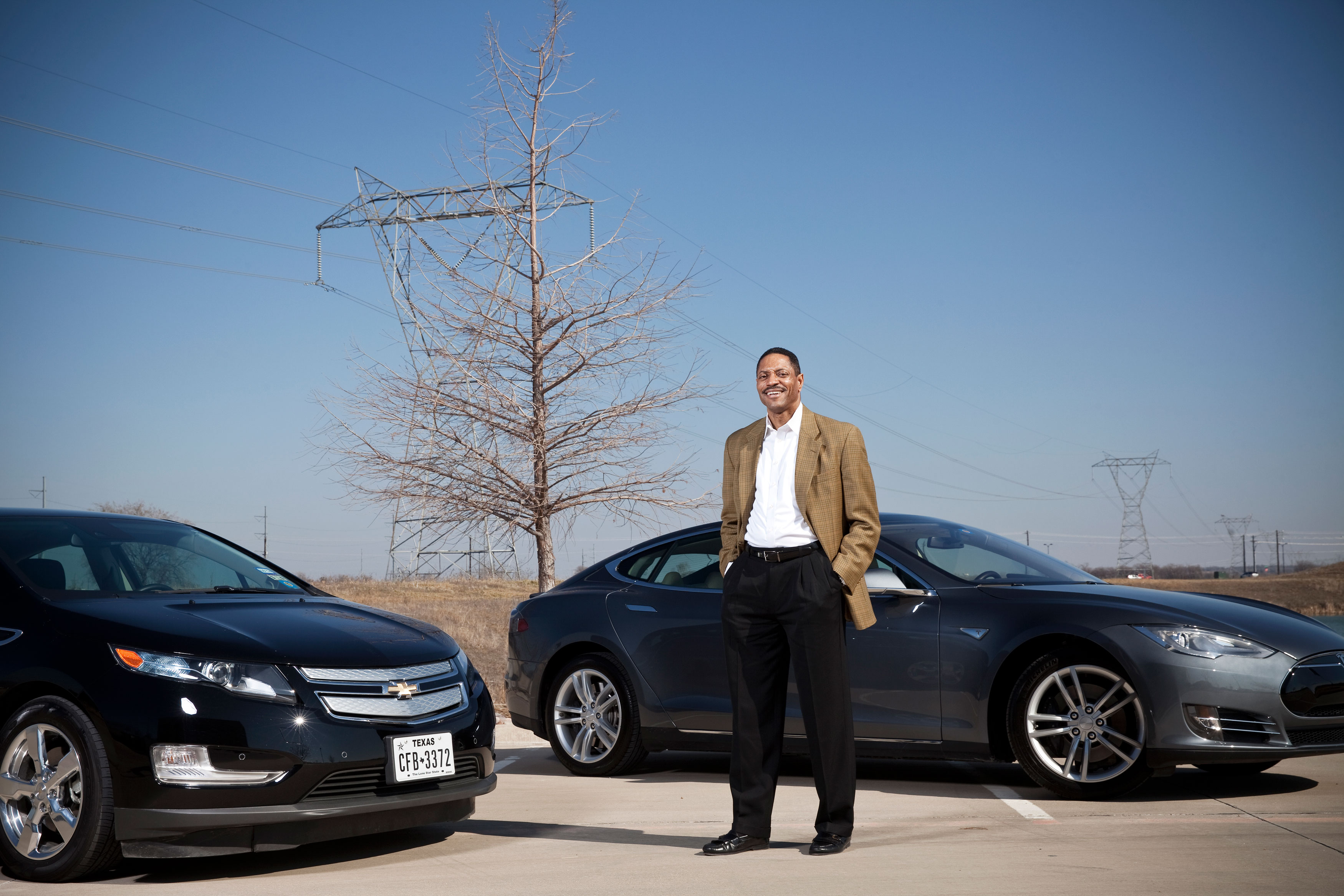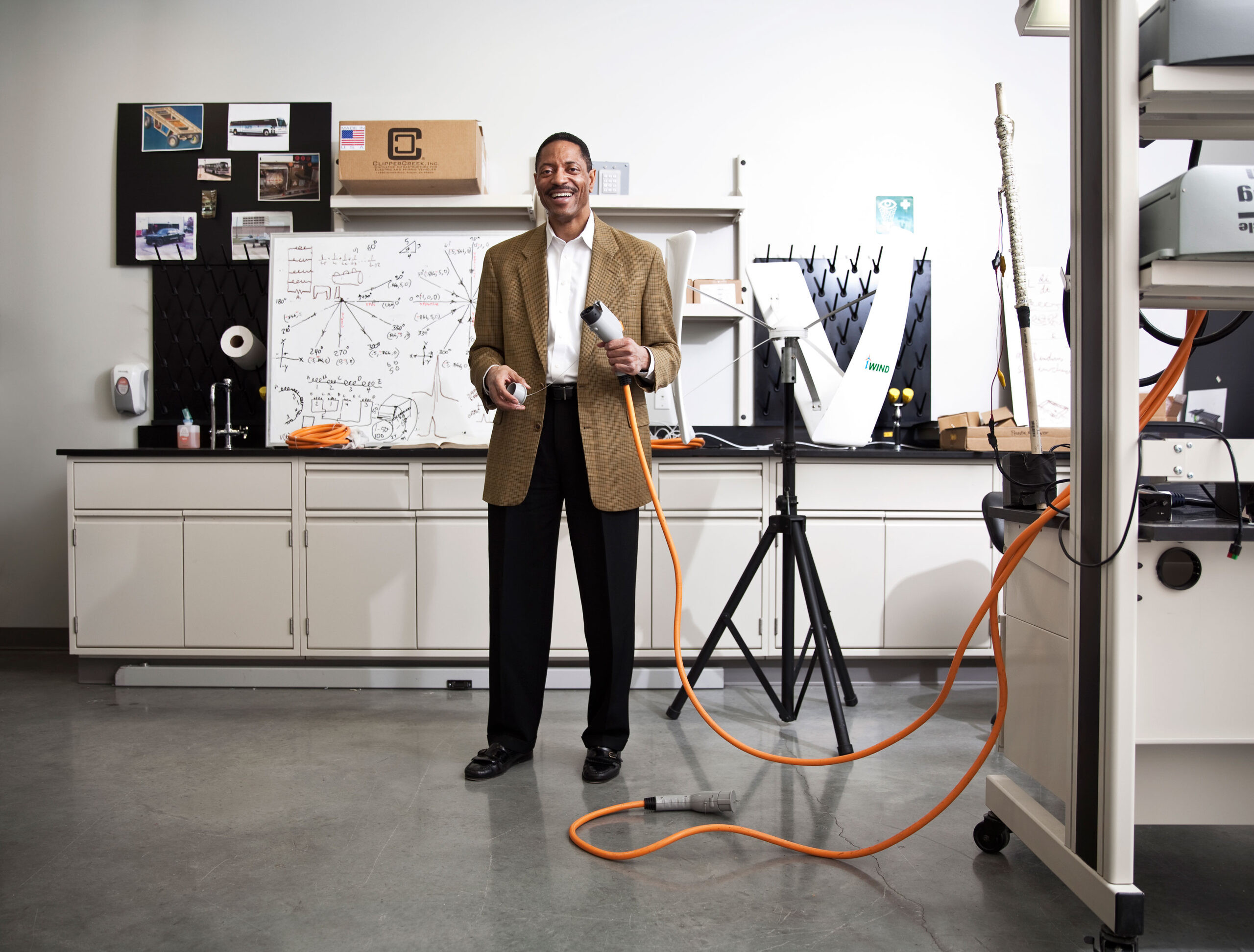When Maceo Ward arrived 15 months ago to help turn around a struggling EV Tech, he wasn’t interested in the seemingly endless possibilities—and potential revenue streams—for the company’s products and services. In fact, his first order of business was to take many of the possibilities off the table completely.
Frisco-based EV Tech, which produces motors, controllers, batteries, and charging systems for electric vehicles, light electric vehicles, and outdoor power equipment, had already tried to be too many things at once. It was a time for convergence, which, for Ward, meant saying no—a lot.
“I’ve been told that I could teach a laser how to focus,” he says. “The idea was to focus on our core competencies, as we have applicability in so many different segments. If you don’t know where you are going, any road will get you there.”
And that’s where EV Tech was situated when Ward joined the company: meandering down several different paths, with no clear vision, and a business plan that increasingly appeared to be ahead of its time.
The company was founded in 1996 by engineer Doug Canfield, who still serves as EV Tech’s president, to fill the need for electric vehicle infrastructure solutions in support of the pre-market launch of EVs in the United States.
EV Tech had gotten caught up in expanding into different segments where the need for the technology seemed apparent but wasn’t necessarily coming to fruition. Canfield has readily admitted in interviews that the company, which has been internally funded for the past 17 years, was playing in a space that originally showed great potential, but was in danger of dying on the vine.
So when Ward—who has 30 years of industry experience, including stints in the semiconductor, biotech, and analytics worlds—came on board, he had his work cut out for him.

“I immediately needed to bring more definition and shape and form to our service offerings and create a more defined product portfolio,” Ward says. “We had a smattering of products, but they weren’t organized and defined in a way that could really be targeted and applied to the marketplace.”
Especially challenging was the fact that the market for EVs was still emerging, and was not easily understood.
So instead of targeting the consumer market, Ward shifted the company’s focus to the commercial side, whittling down EV Tech’s business plan to four core areas: electric vehicle charging infrastructure, outdoor power tools, EV and light electric vehicle components, and energy generation and storage.
He also ushered the company out of certain lines of business, including building and repairing e-bikes for individual consumers, shifting instead to selling e-bike fleets to businesses, municipalities, and other commercial customers.
And last year, after being approached by a company to help provide engineering and design expertise for a line of hybrid tour buses, Ward realized that the company was simply trying to extract expertise. So he charged the potential client for an engineering study and told them to return when they were ready to buy. Ward says turning down potential opportunities can be difficult, but it is necessary to keep EV Tech on track.
Now that EV Tech is firmly planted, Ward has started to say “yes” a little more. The company is slowly exploring new ventures, including sublicensing its technology for powering oilfield equipment, and partnering with wind turbine manufacturers and others to utilize the company’s motor technology.
Meanwhile, one of EV Tech’s original product lines—charging stations for electric vehicles—has finally found its stride, thanks to several major vehicle manufacturers that have announced plans to roll out electric vehicles, joining established vehicles such as the Nissan Leaf and Chevrolet Volt.
Statistics show that there were 18,000 electric vehicles (not including bikes) in the U.S. in 2011, a number that grew to 72,000 in 2013, and is expected to hit 2.9 million by 2018.
Ward would not disclose specific employee or revenue numbers, saying only that EV Tech experienced a year-over-year revenue increase of 295 percent between 2012 and 2013. And 2013 revenue eclipsed revenue in the prior three years combined.
The company is also working to close its first round of outside funding from a private equity fund, a move that will allow EV Tech to embark on its first major expansion in terms of capabilities and staff.
John Miller, executive director of the North Texas Enterprise Center in Frisco, views the company’s current position as a “rebirth.”
“Their big challenge is breaking into a market that is an emerging market,” he says. “Pioneers collect arrows—not in their quivers, but in their backs. They might have come a little early, but they’ve got their game put together now, and they have the perspective they need to give them great potential and market opportunity.”






